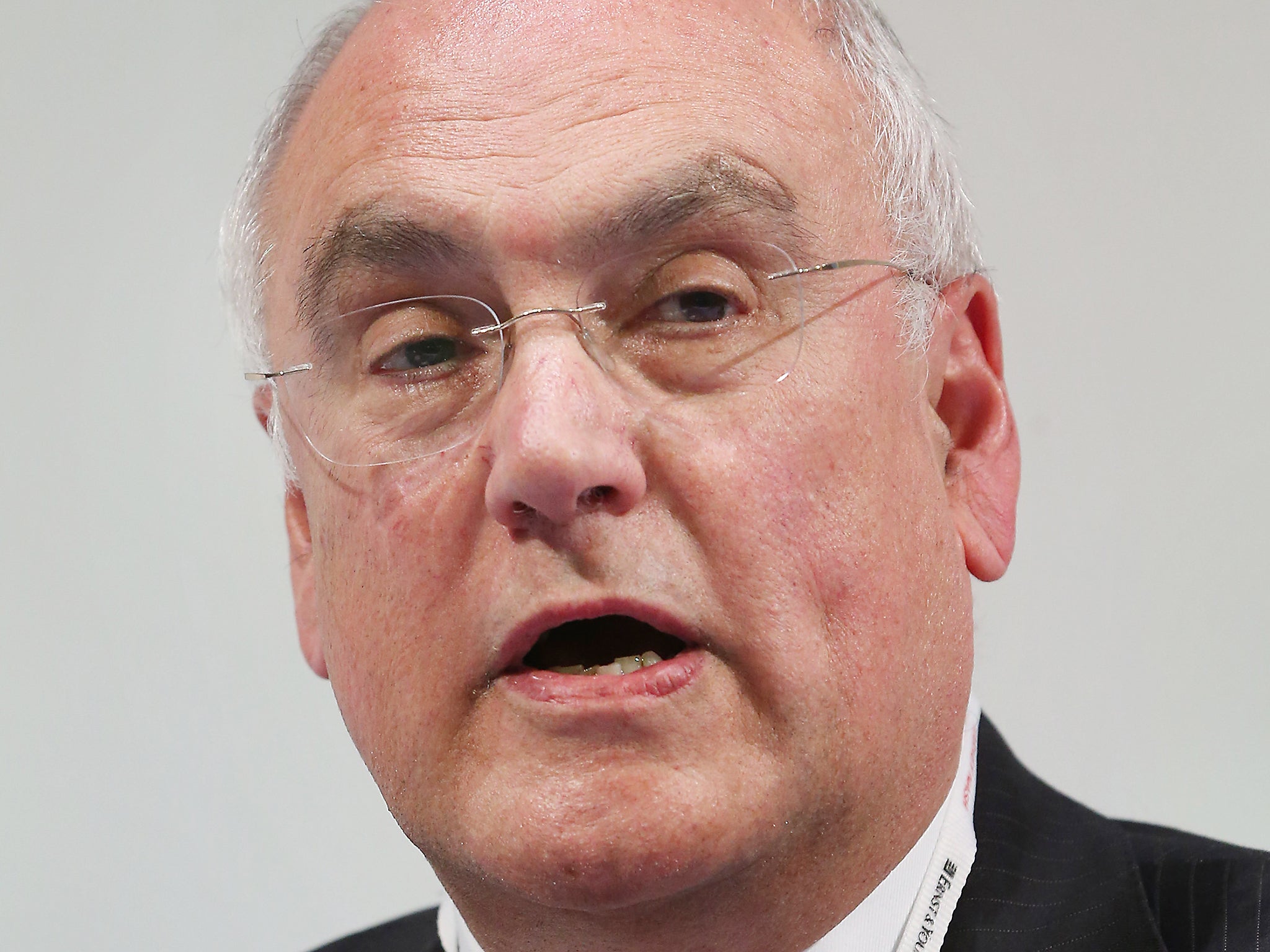Brexit vote linked to resentment over north-south education divide, warns Ofsted boss
'This wasn't just about leaving Europe, it's about our needs being neglected, our children are not getting as good a deal as elsewhere'

Your support helps us to tell the story
From reproductive rights to climate change to Big Tech, The Independent is on the ground when the story is developing. Whether it's investigating the financials of Elon Musk's pro-Trump PAC or producing our latest documentary, 'The A Word', which shines a light on the American women fighting for reproductive rights, we know how important it is to parse out the facts from the messaging.
At such a critical moment in US history, we need reporters on the ground. Your donation allows us to keep sending journalists to speak to both sides of the story.
The Independent is trusted by Americans across the entire political spectrum. And unlike many other quality news outlets, we choose not to lock Americans out of our reporting and analysis with paywalls. We believe quality journalism should be available to everyone, paid for by those who can afford it.
Your support makes all the difference.Failing education standards in some parts of England have contributed to the feelings of discontent that led towards the Brexit result, the chief inspector of schools has said.
Outgoing Ofsted boss, Sir Michael Wilshaw, said while standards were rising overall, there were still a worrying number of poorly performing schools in the north and East Midlands that were contributing towards the sense of a divided nation.
The decision to leave the European Union was therefore connected to “resentment” felt by some poorer communities over the north-south divide in the education system, he added.
Speaking to the BBC ahead of Ofsted’s annual report, Sir Michael said: “The situation is very, very serious,” he said. “If you look at Manchester… nearly one in three schools [is] not good. In Liverpool, half are good. If you look at satellite towns, things are worse.
“It's feeding into a sense that the people of Liverpool, Manchester and the North are not being treated fairly - that their children have less of a chance of educational success than people south of the Wash.
”And that's feeding into a wider malaise that I sense with the Brexit vote, that actually this wasn't just about leaving Europe, it's about our needs being neglected, our children are not getting as good a deal as elsewhere.
The Ofsted chief added that he had been “amazed and shocked” by documents leaked to the BBC this week showing that the Home Office wanted to “deprioritise” the children of parents unlawfully in the UK for school places.
He added: “Schools should not be used for border control.”
The comments follow concerns raised over the controversial new census requiring schools to provide details on pupil nationality and birthplace.
In his last official public engagement before stepping down as the watchdog's chief inspector later this month, Sir Michael told Parliament that the gap in standards was of particular concern among secondary schools.
Furthermore, the knowledge and skills gap found is threatening the country’s productivity in a competitive market, he said, particularly in the wake of the Brexit vote.
Referring to those who had voted to leave the EU, he said the issue “feeds into a sense that somehow they're not getting a fair crack of the whip.
“They sense that somehow their children are not going to get as great a deal as youngsters in London and the South of England.
”If they sense that their children and young people are going to be denied the opportunities that exist elsewhere, that feeds into a general sense that they're being neglected.
“It wasn't just about leaving the European Union and immigration, it was that sense of a disconnection with Westminster.
”If they feel that their needs are being ignored, that their children are not getting the sort of education that others in the South are, then they will feel resentful.“
He said regions that are already less prosperous than the South are in danger of adding a learning deficit to their economic one.
He added: ”Recent political history shows what can happen when large parts of the population feel alienated because they feel they are not being dealt with fairly.“
The Ofsted annual report, published on Thursday morning, highlights that overall standards are rising, with 1.8m more pupils in good or outstanding maintained schools in 2016 than in 2010.
During this period, the curriculum and assessment regime had become more rigorous and children from poor backgrounds were gaining ground on their peers in national primary tests.
But to become truly world class, the report said England needed to have high standards in education in every part the country, helped by the recruitment of more teachers and leaders in in the right areas.
It also highlighted the poor quality of education in the more geographically and economically isolated parts of the country, including coastal areas.
In a statement referencing official figures released last week, School Standards Minister Nick Gibb said: ”Good and outstanding schools now make up 89% of all schools inspected in England, with the proportion of primary and secondary schools in this category continuing to rise in every region of the country, including in the North and the Midlands.
“We want every child to have access to an excellent education, regardless of their background or where they live.
”We know there is more to do, and that's precisely why we have set out plans to make more good school places available, to more parents, in more parts of the country - including scrapping the ban on new grammar school places, and harnessing the resources and expertise of universities, independent and faith schools."
Join our commenting forum
Join thought-provoking conversations, follow other Independent readers and see their replies
Comments